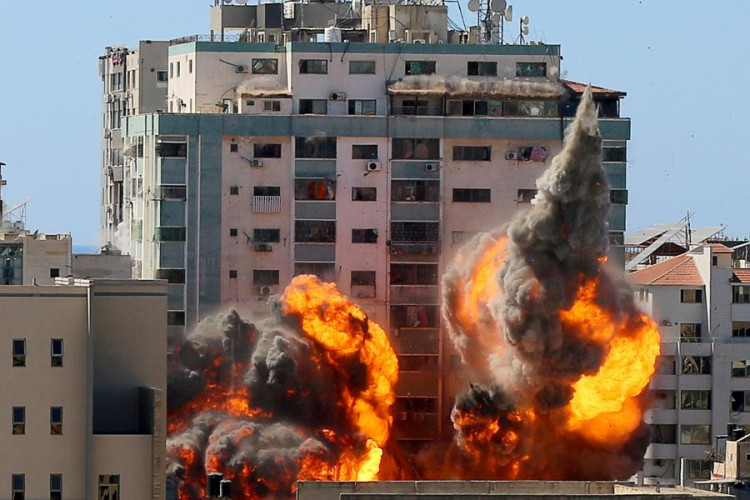In the aftermath of the Israel-Hamas conflict, global corporations and their leaders are finding themselves in a precarious position. As the world watches the escalating tensions, CEOs and companies are grappling with how to respond, especially given the diverse opinions and expectations of their stakeholders.
Starbucks, the global coffee giant, has come under fire for a tweet supporting Palestine. The company accused a union representing thousands of its baristas of tarnishing its brand and endangering co-workers with the tweet. This incident underscores the challenges businesses face when navigating politically charged issues on public platforms.
A prominent tech conference CEO stepped down following backlash over his statements suggesting Israel's involvement in war crimes. This move came after company executives pledged not to hire individuals affiliated with university student groups critical of Israel, as reported by KATU News.
During Nasdaq's recent quarterly earnings call, CEO Adena Friedman expressed her horror at the "acts of terrorist violence" in Israel. She also lamented the tragic loss of lives in Israel, Gaza, and the surrounding region. Friedman's sentiments were echoed by leaders from Goldman Sachs Group, BlackRock, United Airlines Holdings, and other major corporations. These leaders are facing mounting pressure to address the conflict, especially as the human toll continues to rise.
Crisis communication experts have been inundated with calls from CEOs seeking guidance on crafting their messages. As Davia Temin, owner of the New York-based crisis management consulting firm Temin and Company, points out, CEOs are grappling with whether to speak out or remain silent. Both choices come with their own set of challenges and potential repercussions.
In the days following the attack on Israel and the subsequent retaliation against Hamas, only about 20% of the top 100 S&P 500 companies had made formal statements about the conflict. This is in stark contrast to the near-universal public comments made about the Russia-Ukraine conflict.
Nike, for instance, faced internal criticism for its delayed response. CEO John Donahoe eventually condemned the attacks in Israel and the tragic loss of lives in a company-wide message. However, some employees expressed their disappointment with the company's response, as seen in Slack messages viewed by Bloomberg.
The Role of Corporations in Social and Diversity Initiatives
The Israel-Hamas conflict has reignited debates about the responsibilities of corporations in social and diversity initiatives. Paul Argenti, a professor of corporate communications at Dartmouth's Tuck School of Business, notes that businesses are now expected to weigh in on global events, especially in the wake of events like the death of George Floyd.
However, companies are also wary of making public statements on contentious issues to avoid alienating their customer base and investors. For instance, global companies like McDonald's, with vast franchisee operations, are being inadvertently dragged into the conflict. After images surfaced showing franchised McDonald's outlets in Israel serving the Israeli military, calls for boycotting the fast-food chain spread on social media. McDonald's CEO, Chris Kempczinski, expressed the company's strong condemnation of violence and hate speech but did not specifically mention Israel or Hamas.
The Israel-Hamas conflict underscores the challenges global corporations face in today's interconnected world. As companies navigate these turbulent waters, their responses will be closely watched and scrutinized by stakeholders, customers, and the global community.





